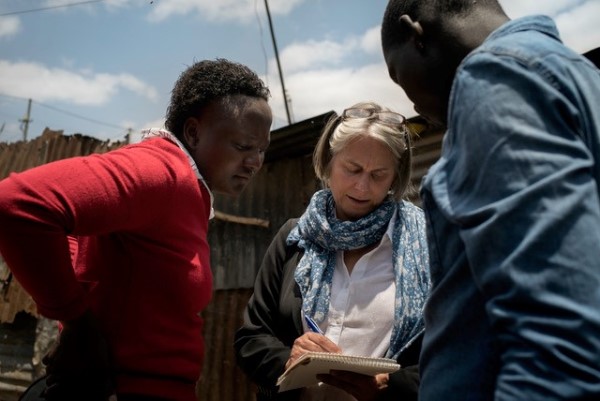The Naked Self-Interest of Overreach
June 01, 2019
Parenting actions complicate the lives of students and educators

PHOTO © BY DIANA ZEYNEB ALHINDAWI
The biggest change to families, and the one that I see impacting schools in a worrisome way, is the rise of middle class and affluent parents who are demanding benefits and resources for their own children without regard for (and sometimes, at the expense of) other people’s children.
These impulses, of course, always have existed. Parents always want the best for their kids. And there always are those who overreach, but in the past those impulses were balanced by a sense of community, a drum beat to remind parents that schools must do what is right for all kids, not a single kid.
For complex reasons, some obvious and others more subtle, those guardrails have slipped away. In many places, “supporting” one’s child has morphed into something that might appear to our grandparents as nakedly self-interested. Listen to parents of school-aged children today. Their laser focus on making sure their own child gets ahead socially and academically now serves as a pure and unquestioned virtue, a sign of nothing more complicated than familial love. The impact of this kind of thinking seems to be dramatically altering the relationships between parents and schools — and not positively.
Information Sharing
To be sure, good parents need to keep an eye on their children’s social, intellectual and academic progress. As postsecondary education or training has become the norm, making sure your child is on track to graduate from high school takes on a new importance. And to be fair, many parents of school-aged children are overwhelmed by the daily concerns and endless emergencies that come with keeping small humans alive and thriving.
Owing to the slow strangulation of local news media, this generation of parents has fewer opportunities to learn how schools operate, the values they champion and the breadth and the caliber of community stakeholders in the education process. Those seemingly insignificant articles about school board meetings, academic achievements and minor controversies created a larger frame around parents’ view of their own child’s school experiences.
Social media has filled that gap, sort of. But those formats retail indignation and invite outrage and tend to be more about cultivating reactivity than providing contextualized information parents need to know about before they act on their kid’s behalf.
Absent good information about how schools are working and why, parents are strongly influenced by what they hear. The tropes of two decades of education reform, which have been productive in promoting transparency and accountability and providing better educational options for some low-income students, also has demonized and de-professionalized teaching and undermined the public’s trust in school administrators. Parents are encouraged to think of themselves as customers and their children as consumers of educational services.
Young parents also are getting bombarded by messages that economic inequity is on the rise. Parents, with an anxious eye on our winner-take-all economy, see it as a duty to wrest additional measures of what they perceive to be increasingly scarce resources for their own kin.
Disappearing Discourse
What are the countervailing forces to this trend? They are hard to see. Discourse about the public good once took place in our statehouses, at the pulpit of churches and on the podiums of community organizations. But our political life is fractured and participation in religious and civic groups has waned. Communities known for great K-12 public education also are known for high taxes, and that means older parents, who may have developed a longer-term prospective, quietly move to cheaper neighborhoods.
How do school administrators help push the conversation from “my kid” to “our kids?” Many are putting more resources and effort into educating parents about the role of school and schooling. They gently but firmly push back against
the consumer mentality and facile talk about market forces in education. They champion programs that build community connections between families within the school and within the community. They know that out of balance, under pressure and poorly
informed, my-kid-first parents erode the often-delicate relationship between schools and the families they serve.
Advertisement
Advertisement
Advertisement
Advertisement

.png?sfvrsn=dde77dc7_3)

